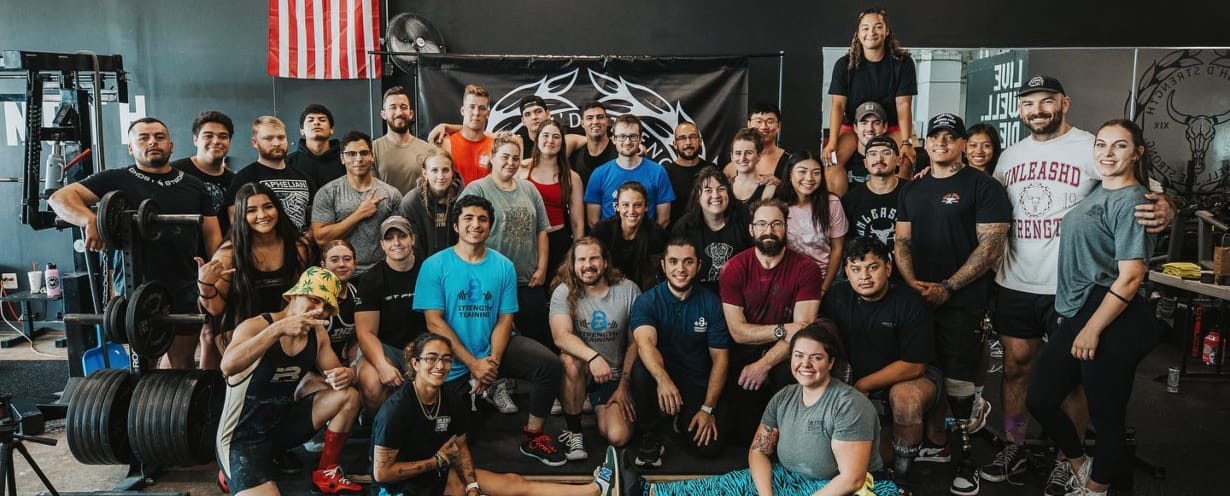-
01
IntroGet started by booking your free intro.
-
02
PlanChoose from one of our open gym programs or book a consult with one of our trainers.
-
03
ResultsStart training, follow your program and get results.
Getting started is easy at the best gym in Manassas!
At Unleash’d Strength Gym in Manassas Park, we believe that the path to reaching your goals starts with an actionable plan. Talk with one of our expert coaches to learn more about which program style will fit your lifestyle. Join our gym to get results that last.
MATTHEW ZWIREN'S STORY
The best gym I have ever been too. The owners are extremely helpful, friendly, and love to see others succeed. Could not ask for a better atmosphere.
AMBER HANSEN’S STORY
This gym is incredible. Welcoming for all strength levels and fitness goals. Amazing equipment. Unrivaled atmosphere and community.
GEORGE BAILEY'S STORY
If you havent been here yet u are really missing out. These guys got it right and the atmosphere is amazing. Started here when it first opened and hav
Achieve your goals with us
Take the first step in becoming your own success story.

